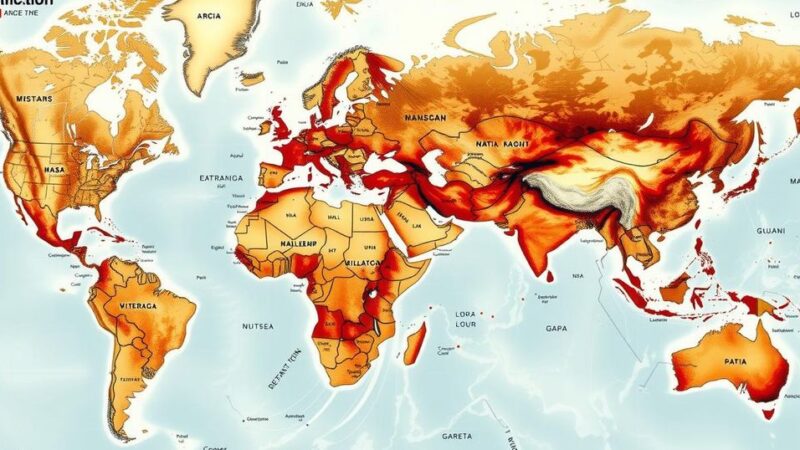The NCDC reports that Nigeria’s diphtheria outbreak has resulted in 1,319 deaths, driven by low vaccination rates and testing capacity issues. The state of Kano accounts for nearly 75% of confirmed cases, while fatalities remain concerningly high in various states. Urgent mass vaccination campaigns are recommended, especially for children aged one to 14, to mitigate the ongoing crisis.
The Nigeria Centre for Disease Control and Prevention (NCDC) reported that 1,319 fatalities have occurred due to the ongoing diphtheria outbreak. This information was released in the latest situation report from the National Diphtheria Emergency Operations Centre (EOC). Diphtheria, caused by the bacterium Corynebacterium diphtheriae, primarily affects the throat and nose, leading to severe complications like breathing difficulties and heart failure.
Vaccination plays a crucial role in the prevention of diphtheria, and timely treatment with antitoxins and antibiotics is essential for managing the disease. Since 2022, over 42,000 suspected cases have been reported across 37 states in Nigeria. The NCDC highlighted ongoing challenges, including low vaccination rates, insufficient laboratory capabilities, and delays in case confirmations in its report, which covers Epidemiological Week 10 of 2025.
Kano State represents a significant burden, accounting for 75 percent of confirmed cases, totaling 18,108 of 25,812. Other states with notable case numbers include Bauchi (2,334), Yobe (2,408), and Katsina (1,501). The case fatality rate is at 5.1 percent, translating to one in every 20 confirmed cases resulting in death, with certain states experiencing even higher rates.
In the recent reporting week, 23 new suspected cases were noted, predominantly in Lagos (20) and Katsina (3); however, these have not yet been confirmed. The NCDC also indicated that 56.5 percent of cases remain unclassified due to delays in laboratory confirmation. To address this crisis, the Federal Government has initiated reactive vaccination campaigns in high-burden states and is strengthening community engagement, particularly with traditional and religious leaders.
Experts have expressed concern over the late diagnosis and limited access to treatment, contributing to soaring fatality rates. Despite Nigeria’s Expanded Programme on Immunisation (EPI), only 19.3 percent of confirmed cases were fully vaccinated. Dr. Solomon Chollom, a medical virologist, emphasized the critical gap in routine immunization coverage, mainly in northern Nigeria, and the necessity for immediate mass vaccination efforts targeting children aged one to 14 years, who constitute the majority of confirmed cases.
Dr. Chollom also noted that all diphtheria cases in 2024 were based on clinical symptoms rather than laboratory confirmations. This circumstance raises questions about the actual disease burden, as inadequate testing could lead to underreporting. The government has committed to enhancing laboratory capacities and expediting protocols for PCR testing; however, progress is currently slow.
Experts urge a comprehensive vaccination campaign against diphtheria, enhanced disease surveillance, and a consistent supply of diagnostic service materials. Considering the severity of Nigeria’s diphtheria outbreak, health officials warn that conditions may deteriorate without improved vaccination and surveillance efforts. Suggested measures include bolstering case management support, enhancing laboratory diagnostics, expanding vaccination coverage, and amplifying public awareness through active community engagement and social media outreach. Public health authorities maintain that preventive vaccination remains the most effective defense, and parents are encouraged to ensure their children receive routine immunizations.
In summary, Nigeria is facing a critical diphtheria outbreak with over 1,300 deaths reported, compounded by vaccination gaps and inadequate laboratory capacity. Urgent actions, including mass vaccination campaigns and enhanced disease surveillance, are essential for controlling the outbreak. Public health experts stress the importance of ensuring that children receive their vaccinations to prevent further casualties and manage the crisis effectively.
Original Source: dailynigerian.com






